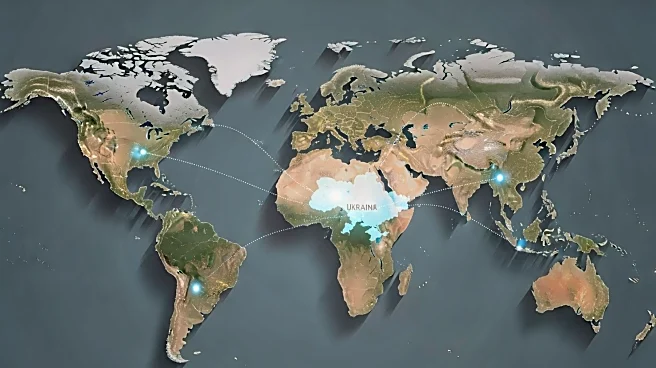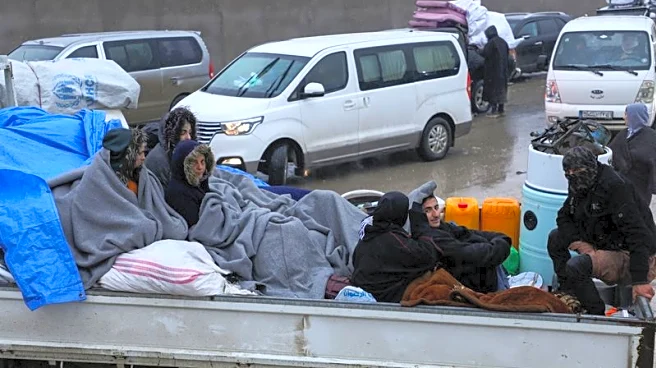What's Happening?
Over 1,400 African citizens from more than 12 countries have reportedly been recruited by Russia to fight in Ukraine, according to Ukrainian authorities. These individuals are allegedly being drawn into the conflict under deceptive military contracts,
which often lead to high-risk frontline missions. The situation has prompted several African governments, including South Africa, Kenya, and Togo, to investigate these recruitments and issue warnings to their citizens about the dangers of involvement in foreign conflicts. Moscow is accused of exploiting vulnerable Africans through these contracts, described as equivalent to a 'death sentence.' The recruits are reportedly deployed in dangerous 'meat assaults' with high casualty rates, raising significant concerns about their safety and wellbeing.
Why It's Important?
The recruitment of African citizens by Russia for the conflict in Ukraine has significant implications for international relations and the safety of individuals involved. It highlights the vulnerability of African nations to external influences and the potential exploitation of their citizens. This development could strain diplomatic relations between African countries and Russia, as governments seek to protect their nationals and prevent further involvement in foreign conflicts. Additionally, the situation underscores the broader geopolitical strategies employed by Russia to extend its influence in Africa, potentially affecting regional stability and security. The issue also raises ethical concerns about the recruitment practices and the treatment of foreign fighters in conflict zones.
What's Next?
African governments are expected to continue their investigations into the recruitment practices and work towards repatriating their citizens. South Africa has already launched an investigation following distress calls from its citizens involved with Russian mercenary groups. Kenya's President William Ruto has requested the release of any Kenyan citizens held in Ukraine, and Togo has issued warnings about fraudulent schemes luring young Africans into the conflict. These actions indicate a growing awareness and response to the issue, with potential diplomatic efforts to address the situation and prevent further exploitation. The international community may also become more involved in monitoring and addressing recruitment practices in conflict zones.
Beyond the Headlines
The recruitment of African citizens for the Ukraine conflict by Russia may have long-term implications for Africa's geopolitical landscape. As Russia deepens its footprint in Africa, it could lead to shifts in alliances and influence, particularly as Moscow seeks to counter Western influence. This situation also highlights the need for stronger international regulations and oversight regarding recruitment practices in conflict zones, to protect vulnerable populations from exploitation. Furthermore, the issue may prompt African nations to strengthen their diplomatic and security measures to safeguard their citizens from similar situations in the future.

















